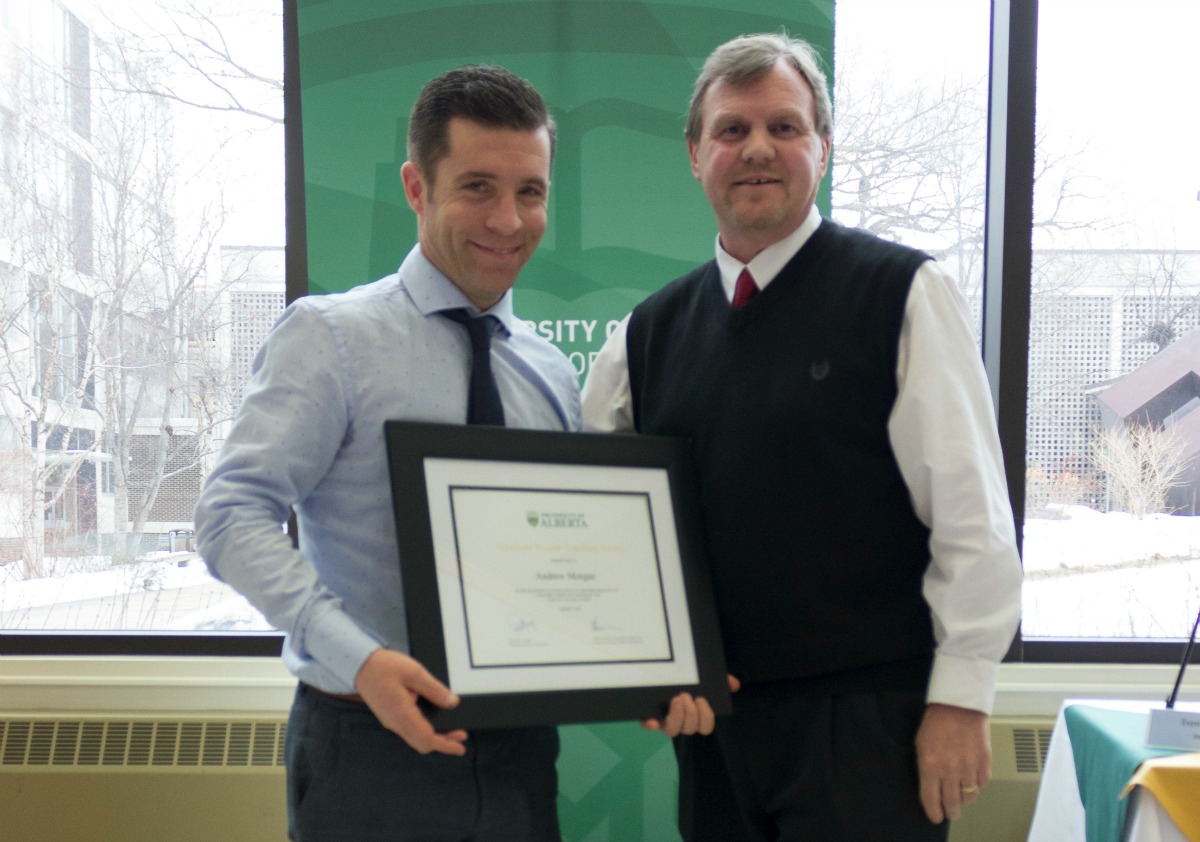The lifelong learner at the front of the classroom
Scott Lingley - 6 June 2018

Andrew Morgan had a dozen years of experience as a classroom teacher in Edmonton when he decided to return to the University of Alberta, where he’d earned his bachelor of education, to pursue a master’s degree in elementary education. In addition to adding credentials that will enable him to pursue future career prospects, Morgan says he wanted to embody an important lesson.
“We advocate in the classroom for students to be always learning, to think that when you finish high school or post-secondary education that that’s not it, it’s just part of the journey,” Morgan says. “I think it’s important to teach by example. I thought it was important for my students to see me as a lifelong learner.”
Not that Morgan took a break from his career. While enrolled in graduate studies, Morgan has continued to work full-time with the Edmonton Public School Board as a teacher mentor-consultant, providing support and resources—often right in the classroom—to new teachers at the beginning of their careers.
“It’s a gift to go out to a different school every day and work with fantastic educators, and feel like you’re playing a small part in moving them along on the journey,” Morgan says. “Some of them I work with regularly, others just need resources once in a while. So you can play a small part or a very large part, and you get to see a variety of schools across the district.”
Morgan’s graduate research focuses on how theories about physical literacy are applied in schools to support the education of the whole child and to encourage lifelong physical participation.
“I’m looking at how physical literacy impacts teaching and learning. It’s really looking for a model,” Morgan says. “Physical literacy is on more of a conceptual level. I want to find out what that could look like in the classroom for teachers — how they program for it, how they evaluate it, what the students’ perceptions are, because it’s more of a holistic construct than we see in current programs, which are more the body-as-machine, rather than mind and body together.”
An educator’s education
Like many passionate educators, Morgan says he was inspired by teachers he had growing up both in his native England and in Canada. But, he adds, sometimes what his role models did outside the classroom made just as big an impression.
“I’ve had a lot of great teachers. I saw them being role models as adults, but I saw them teach a range of subjects and I saw them as important members of the school community. I saw them in the hallways as real kind individuals.”
Given Morgan’s dedication to the teaching profession and to inspiring the next generation of educators, it’s not too surprising he received the 2018 Graduate Teaching Award at the Faculty of Education’s Teaching and Research Celebration on March 22.
“I’ve thoroughly enjoyed my time teaching at the U of A, and I’ve tried to model the classes like I would if I was teaching a regular school class. I made a commitment to model three instructional strategies you could use in an instructional setting, and I think students really enjoyed that because they could take that away and use it in a real classroom.”
Elementary education professor Doug Gleddie knew Morgan professionally prior to becoming his thesis supervisor, and says Morgan sets a great example as an educator and lifelong learner.
“Andrew is very well-known and respected in the physical education community. And he’s a good guy, for sure,” Gleddie says. “I’ve had him come in as a guest lecturer in my class and he’s always so personable and relational, and so able to talk about the reality of teaching and the joys of teaching — you can tell he loves it.”